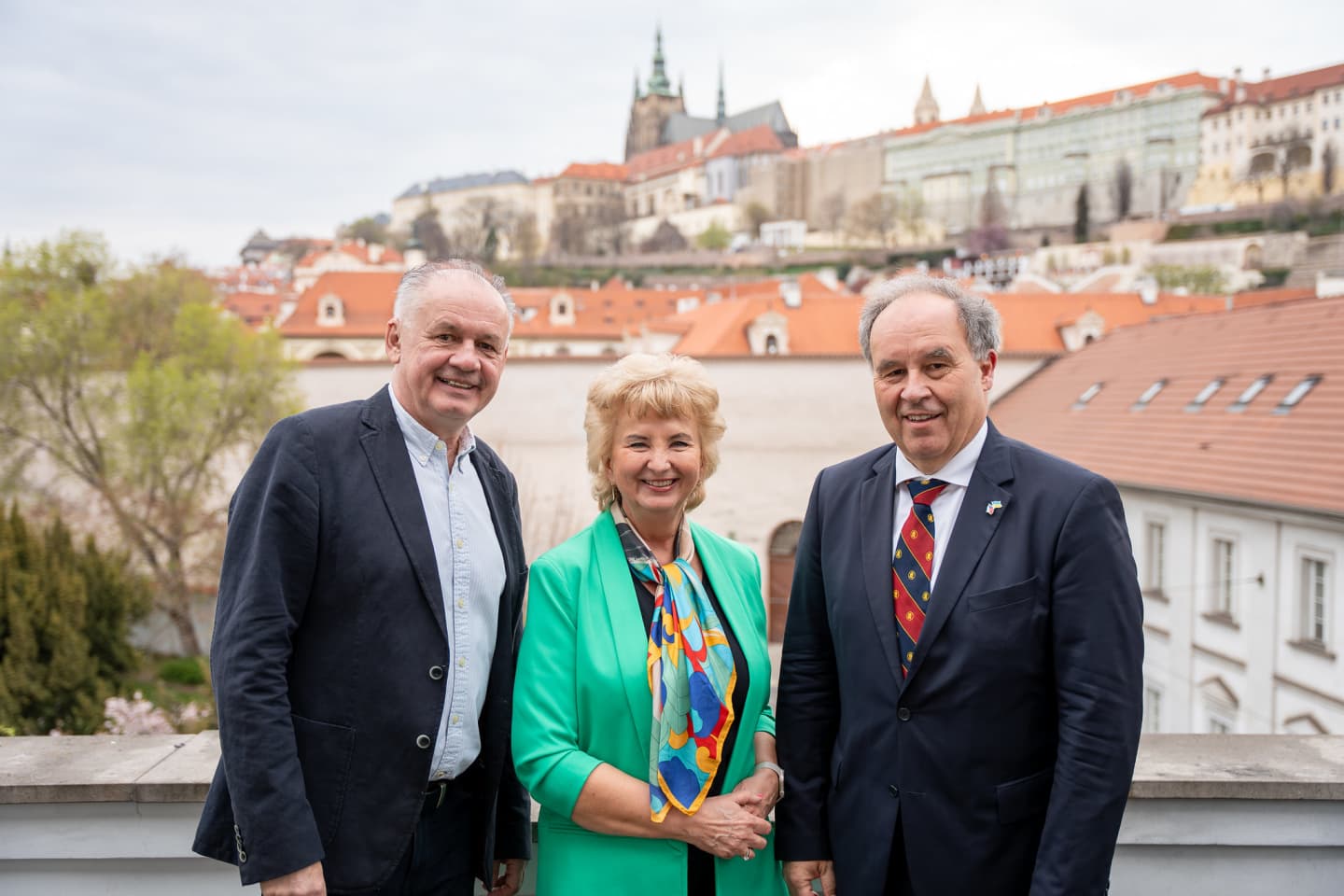Former Slovak President Andrej Kiska Speaks at AAU on Democracy and Civic Duty

On April 9, 2025, Anglo-American University (AAU) welcomed Andrej Kiska, former president of Slovakia, for a public lecture and Q&A session. The event drew students, faculty, staff, and alumni for a rare opportunity to hear directly from a prominent leader in the spheres of entrepreneurship, philanthropy, and politics.
Kiska opened with personal reflections on his life’s journey before moving on to speak on the unpredictability of life, the dichotomy between good and evil, and the responsibility of those in positions of privilege to serve others. These themes, rooted in humility, resilience, truth, and civic duty, set the tone for the open discussion that followed.
Foreign Influence and Disinformation
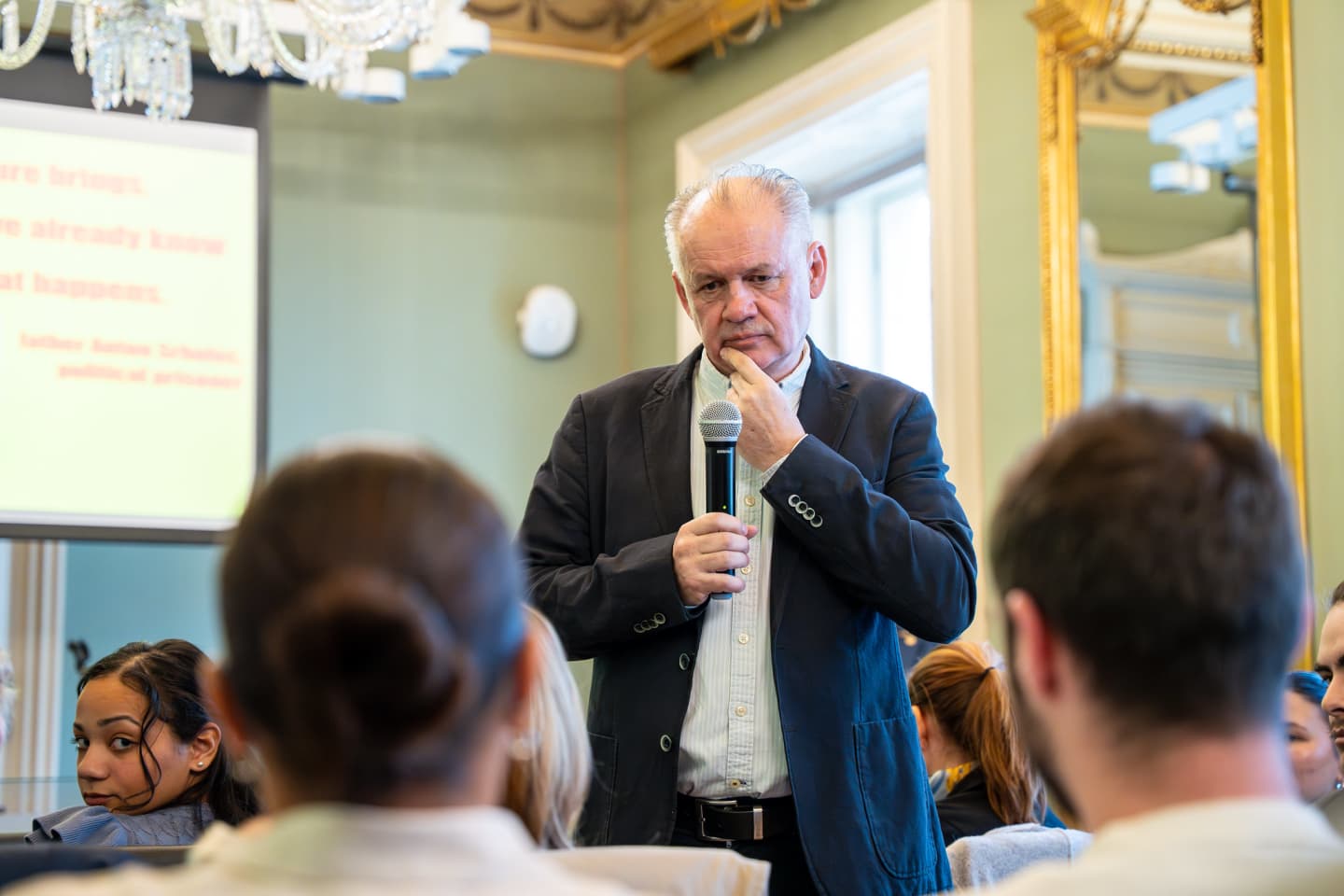
One of the first topics Kiska addressed during the Q&A session was the growing political polarization in his home country, where he said there is an increasing public trust in Russia, which he estimated at around 30%, substantially higher than in the Czech Republic, where the figure is closer to 10–15%. He attributed this disparity to a combination of factors, including rural vs urban demographics, political messaging, and unbalanced media narratives.
He warned that foreign disinformation campaigns, particularly those originating from Russia, continue to pose a serious threat to democratic cohesion in countries like Slovakia. These campaigns, he argued, often exploit divisions and fears to undermine public trust in institutions and weaken smaller EU member states from within.
Leading with Integrity
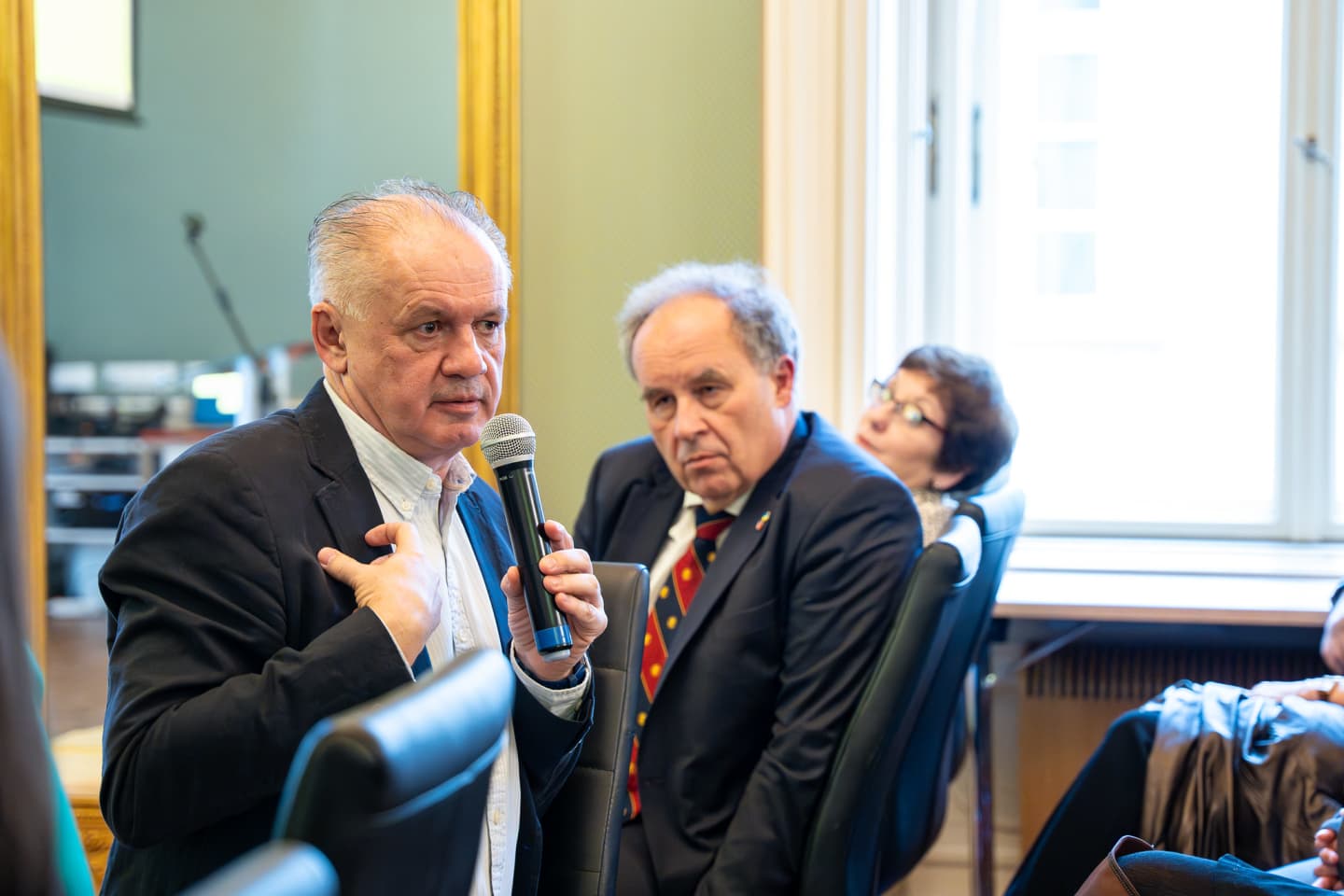
Throughout the Q&A, Kiska returned to a central theme: a leader must be grounded in a strong value system to truly benefit those he or she serves. In connection with his own experience in this regard, when asked whether he regretted refusing a political deal that would have alleviated political pressure against him, he was unequivocal and emphasized that certain decisions must be rooted in principle, especially when the cost of compromise is the erosion of integrity.
He criticized the tendency among some political leaders to prioritize re-election and their own ends over the long-term well-being of their countries and the people they are meant to serve, calling it a dangerous pattern that weakens public institutions and undermines democracy. Leaders, he said, must be willing to serve even those who didn’t vote for them, a principle he described as fundamental to democratic leadership but too often ignored in practice.
Parallel Histories, Diverging Paths
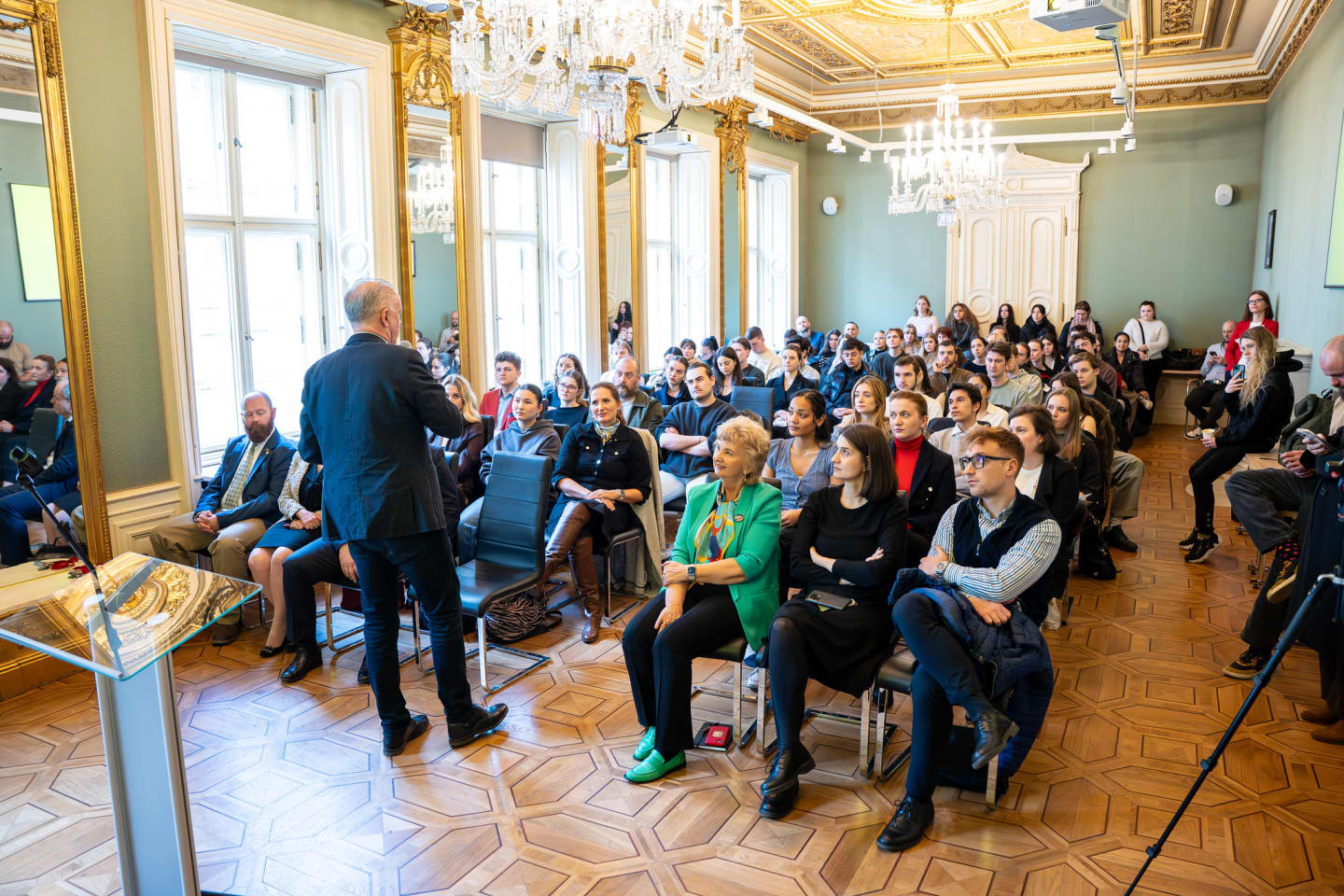
Turning to the broader regional landscape, Kiska offered a comparative perspective on Slovakia and the Czech Republic. While both nations share common democratic foundations, he cautioned that Slovakia’s recent political trajectory has raised concerns about institutional backsliding. He warned that if similar patterns of populist rhetoric and media manipulation take hold, the Czech Republic could face similar challenges.
He also noted the growing trend of Slovak students and professionals relocating to the Czech Republic in search of educational and economic opportunity. This, he said, is at once a reflection of both aspiration and frustration over the conditions in their home country, and an indicator of what Slovakia must address if it hopes to retain its brightest minds.
The Next Generation
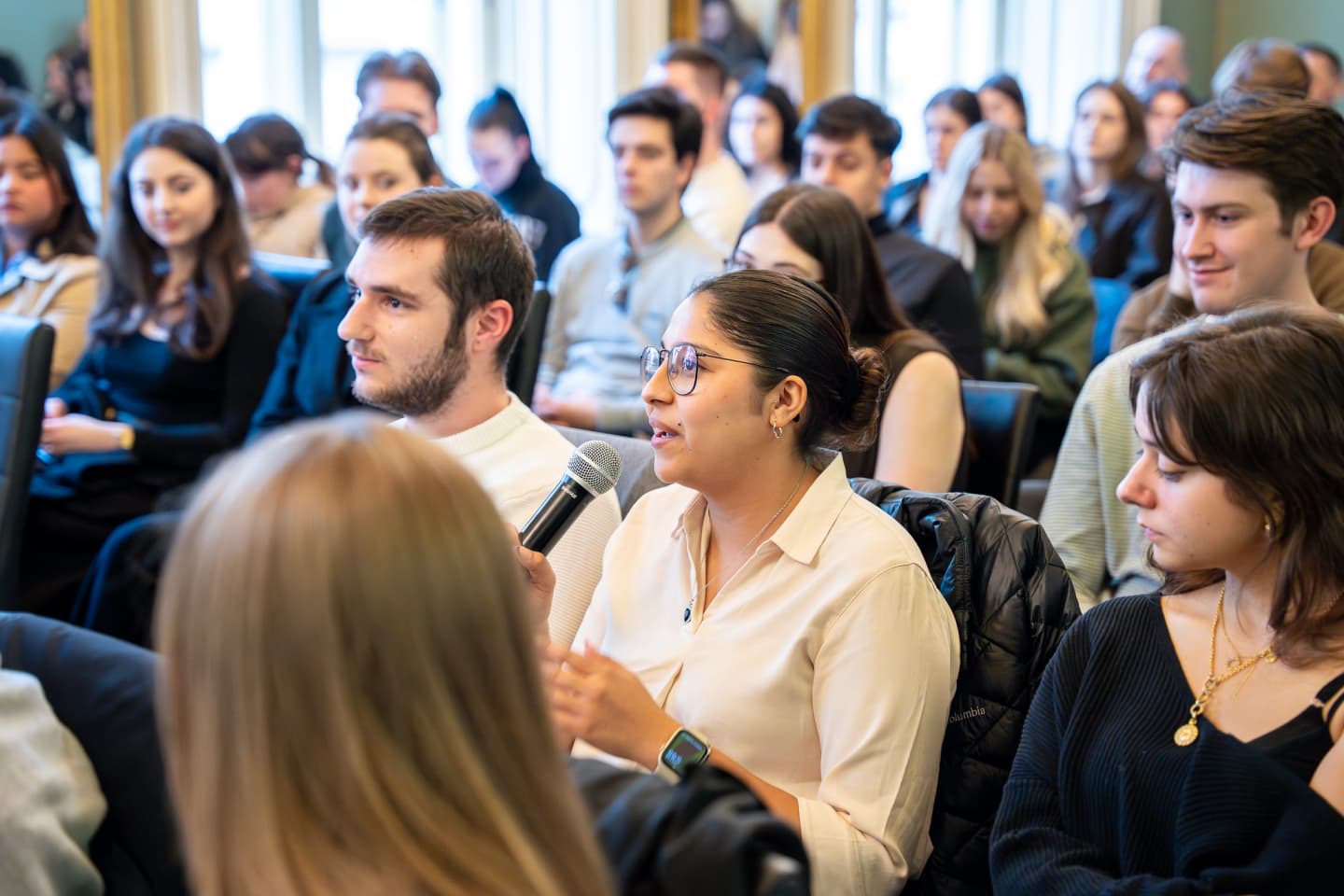
Kiska urged AAU students not to view disengagement or emigration as the only options in the face of political disillusionment. Rather, he emphasized that real change begins with individuals who are willing to remain, speak up, participate in civic life, and defend democratic values in their daily conversations, actions, and networks.
He acknowledged the challenges students face when confronting misinformation, political apathy, or systemic injustice. Still, Kiska maintained that meaningful change requires tenacity, sustained effort, and moral clarity, qualities he sees as essential to repairing trust and rebuilding strong democratic institutions.
Social Equity and Working Within Limitations
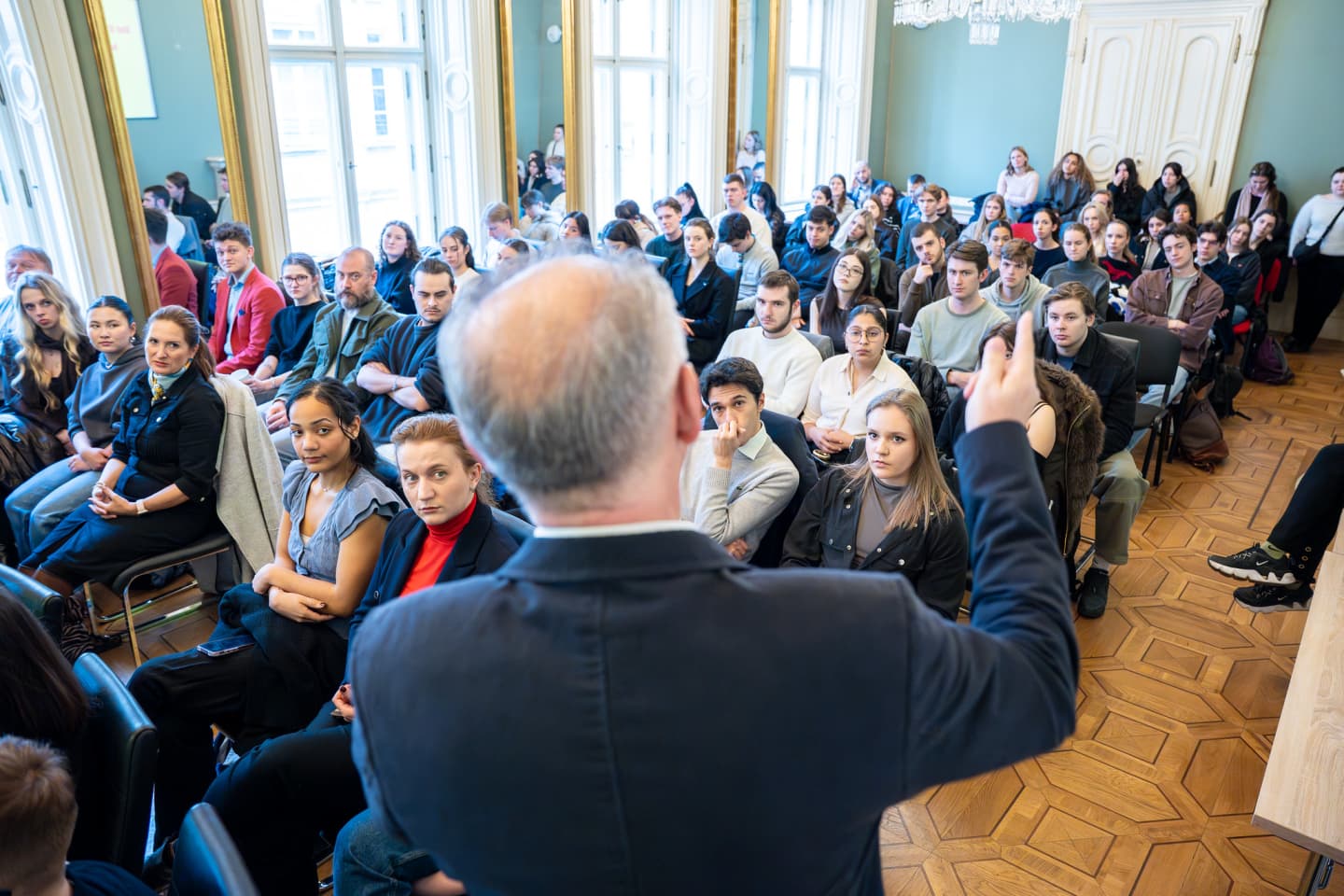
When asked about Slovakia’s immigration policy, Kiska praised the country’s reception of Ukrainian refugees but acknowledged lingering social barriers, including racism and integration challenges. He also pointed to the need for stronger public services and more equitable access to opportunity across the country.
He went on to describe how, during his time in office, he used his platform to draw attention to failings within the system, perhaps most notably in a parliamentary speech that led to the resignation of the health minister. Despite its limitations on executive power in the Slovak system, Kiska said the presidency still offered opportunity for effective influence, namely through public visibility, moral persuasion, and the courage to speak out.
A Life of Service
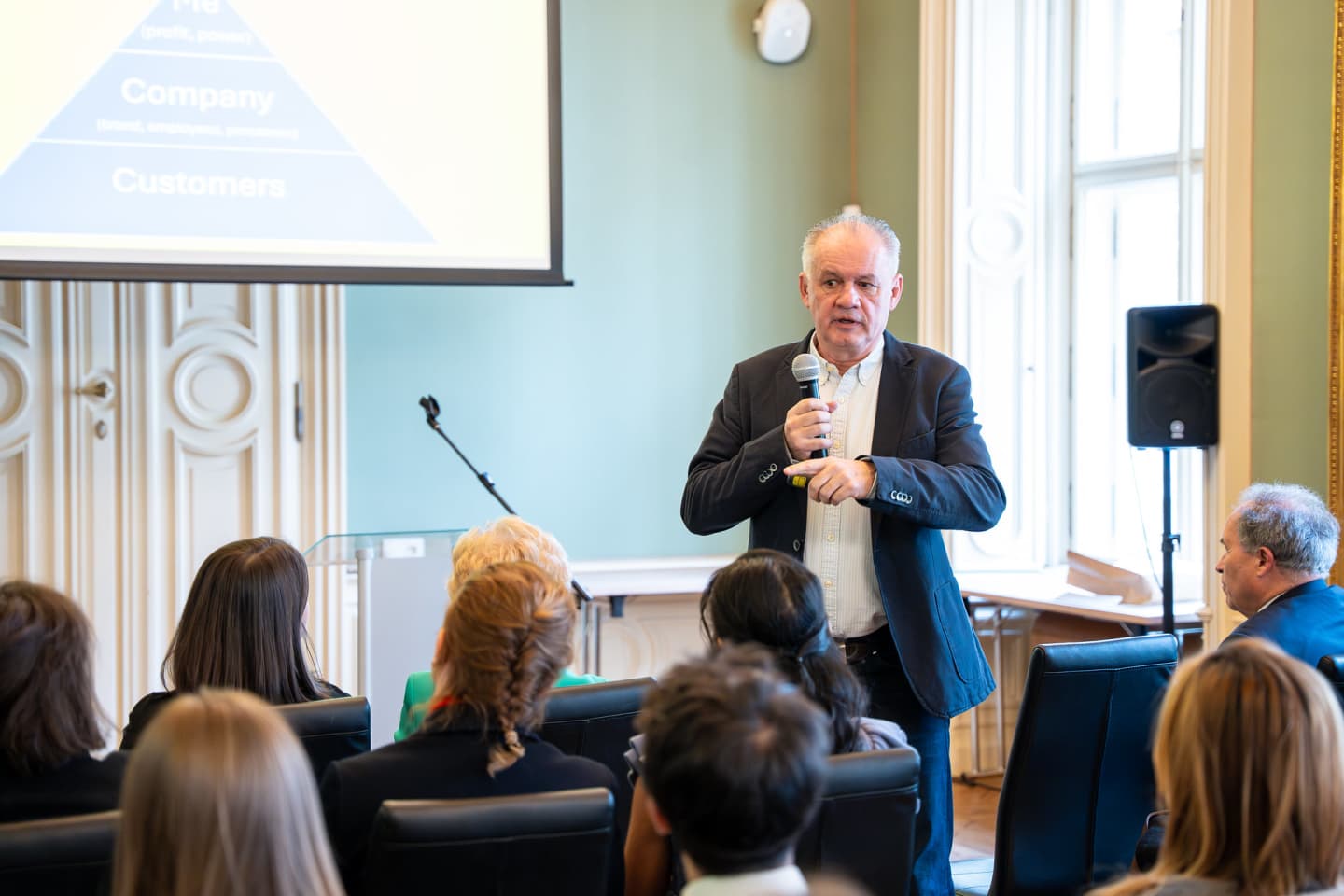
Kiska’s remarks in the course of his talk preceding the Q&A session provided context for the personal convictions behind his public life. Trained as an engineer, he emigrated to the United States in the early 1990s in the hope of ultimately providing his family a better life, a hope that never materialized. Instead, he remained there for a year and a half, working 100 hour-a-week shifts at a gas station for little pay, cleaning floors and preparing food, while his family remained in Slovakia. The experience of living in precarious conditions and missing key moments in his children’s lives, including the birth of his daughter, left a lasting impact.
Yet, upon returning to Slovakia, he drew inspiration from the entrepreneurial spirit he had witnessed stateside, co-founding the consumer finance companies Triangel and Quatro, achieving national success and earning recognition as Slovakia’s “Manager of the Year” in 2006. Yet despite his business achievements, Kiska found himself increasingly unsettled by social inequality and the disconnect between wealth and happiness.
This shift led him to co-found Dobrý Anjel (Good Angel), a transparent nonprofit supporting families facing serious illness and financial hardship. He personally funded the organization’s administrative costs to ensure that every cent donated reached its intended recipients. Kiska said this was more than charity; it was a moral obligation to use his success for the benefit of others.
In the end, however, he concluded that philanthropy alone could not address systemic injustice, a realization that prompted his entry into politics. In 2014, he became the first Slovak president elected without prior party affiliation. His term, which lasted until 2019, was marked by efforts to restore public trust in government, support civic protest movements, and advocate for institutional transparency, all in the face of political resistance.
A Platform for Public Dialogue
Kiska’s visit formed part of AAU’s ongoing guest lecture series aimed at connecting students, staff, faculty, and alumni with global leaders who possess real world experience and wisdom. The event also reflected the university’s broader mission: to prepare graduates for meaningful service as informed, thoughtful, and ethically grounded individuals. As Kiska made clear, defending democracy is not the work of presidents alone, but the shared responsibility of all who are willing to act with conviction and courage.
Photos of the event can be found here
